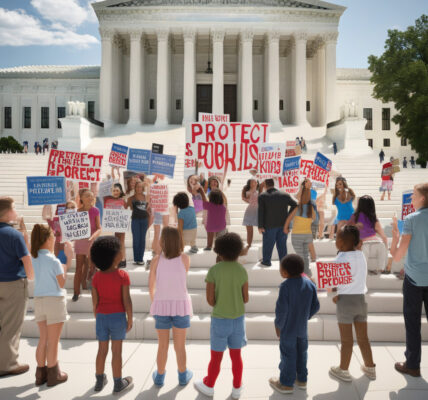Tech Group Sues To Block Maryland Kids Code
Tech Group Sues To Block Maryland Kids Code
Maryland’s Age-Appropriate Design Code has sparked controversy within the tech industry. The code, aimed at protecting teens’ privacy by limiting online companies’ data collection practices, is now facing a legal challenge. NetChoice, a prominent tech advocacy group, has filed a lawsuit arguing that the code infringes upon the First Amendment rights of online platforms.
The Maryland Kids Code, as it is commonly known, sets out stringent guidelines for websites and apps that target minors. It requires these platforms to implement privacy settings that prevent the collection of sensitive information from users under the age of 18 without explicit consent. Additionally, the code prohibits the use of certain types of targeted advertising to minors.
While the intentions behind the Maryland Kids Code are noble – safeguarding the online privacy of young users – NetChoice believes that the code goes too far. The tech group argues that the restrictions imposed by the code hinder companies’ ability to provide personalized services and content to users. By limiting data collection and targeted advertising, online platforms may struggle to sustain their business models, which often rely on these practices to generate revenue.
Moreover, NetChoice contends that the Maryland Kids Code violates the First Amendment, which protects the freedom of speech and expression. By imposing constraints on how online platforms interact with users under 18, the code could be interpreted as a form of government overreach that restricts companies’ ability to communicate with their audiences freely.
The lawsuit filed by NetChoice brings to light a broader debate surrounding the regulation of online content and data privacy. While there is a growing consensus on the need to protect minors from online threats and exploitation, the methods and extent of regulation are subjects of contention. Critics of the Maryland Kids Code argue that it sets a precedent for overly prescriptive regulations that stifle innovation and limit the availability of online services.
Proponents of the code, on the other hand, emphasize the importance of prioritizing children’s privacy and well-being in the digital age. With concerns about data breaches, online tracking, and the impact of targeted advertising on young minds, many believe that stringent measures are necessary to ensure a safe online environment for minors.
As the legal battle over the Maryland Kids Code unfolds, it raises crucial questions about the balance between privacy protection, freedom of expression, and commercial interests in the digital realm. How can regulations effectively safeguard minors’ online experiences without impeding innovation and infringing on constitutional rights? Finding the right balance will require a nuanced approach that considers the interests of all stakeholders involved.
In the ever-evolving landscape of digital technology and online commerce, the debate over the Maryland Kids Code serves as a reminder of the complex challenges that arise at the intersection of technology, regulation, and society. As courts deliberate on the legality of the code, the outcome of this case will undoubtedly have far-reaching implications for the future of online privacy and free speech.
#MarylandKidsCode, #NetChoiceLawsuit, #OnlinePrivacy, #FirstAmendmentRights, #TechRegulations












